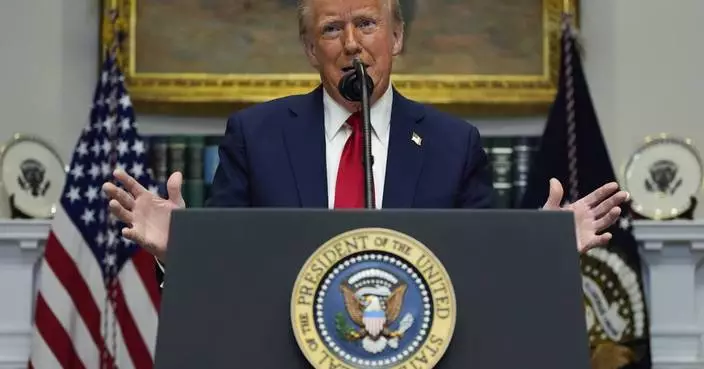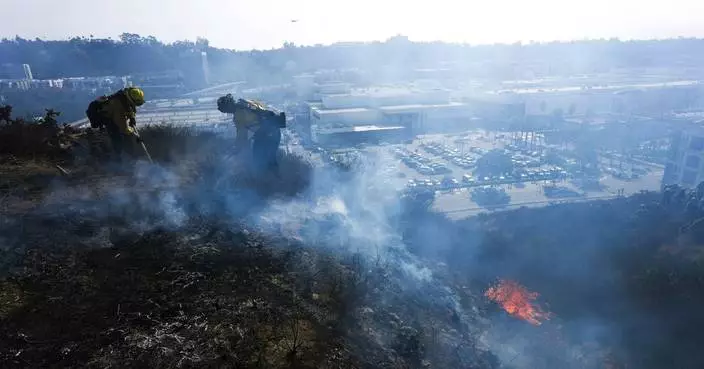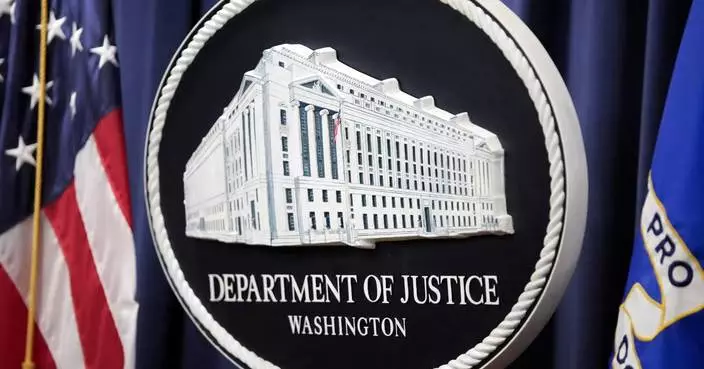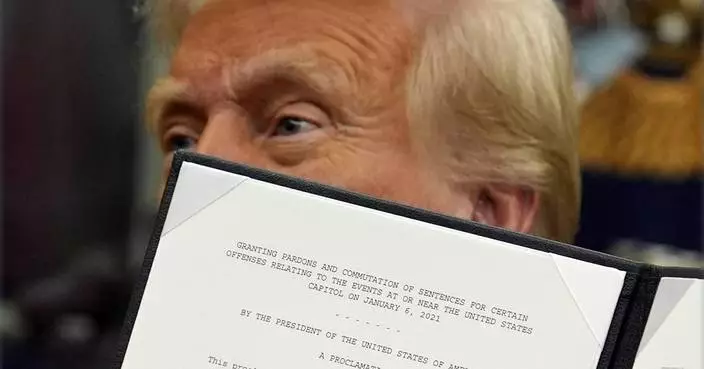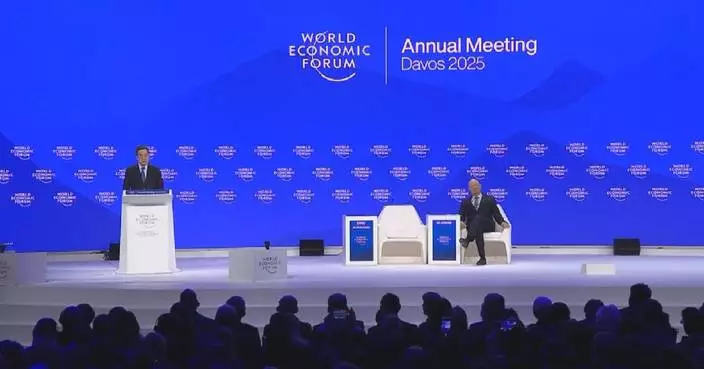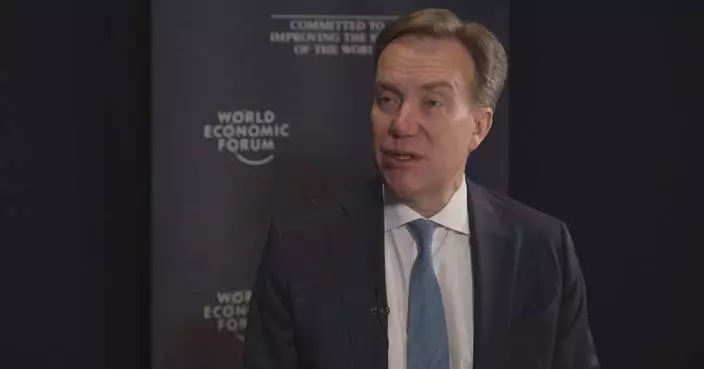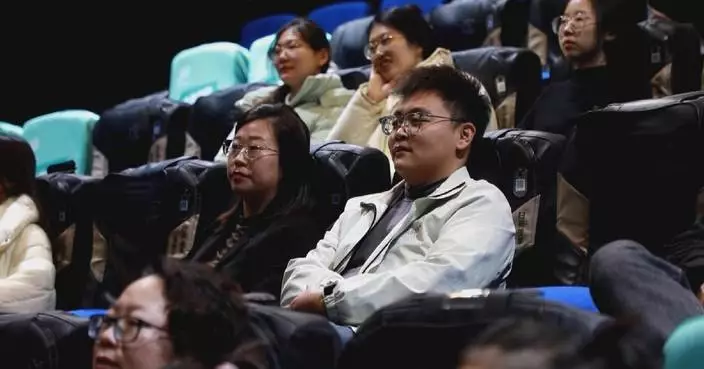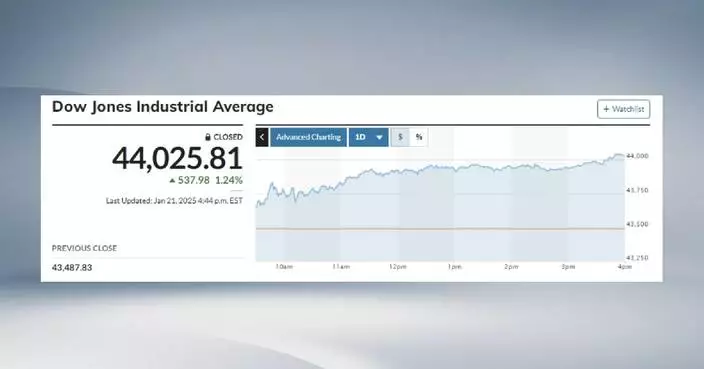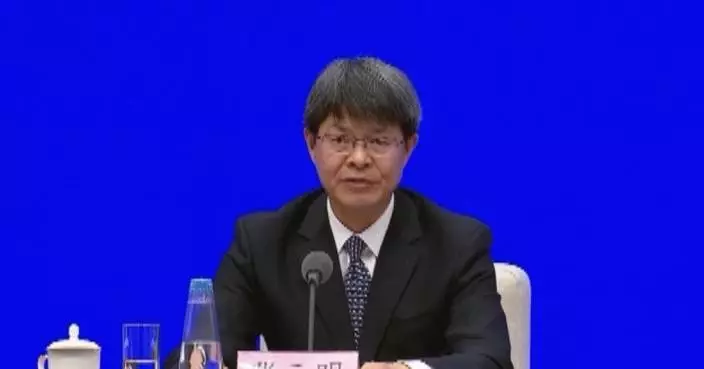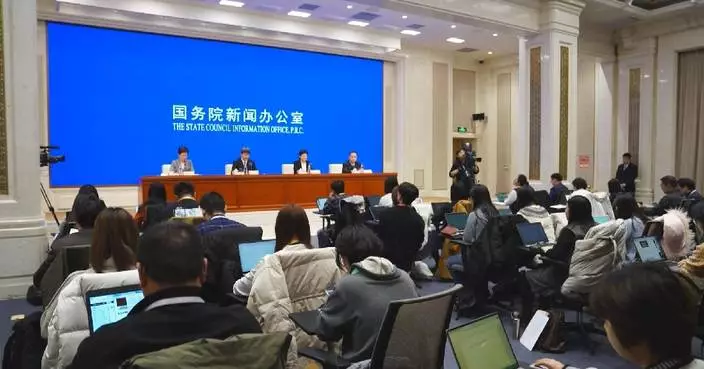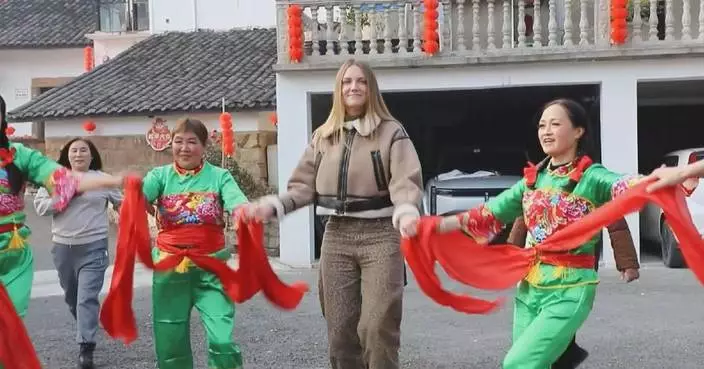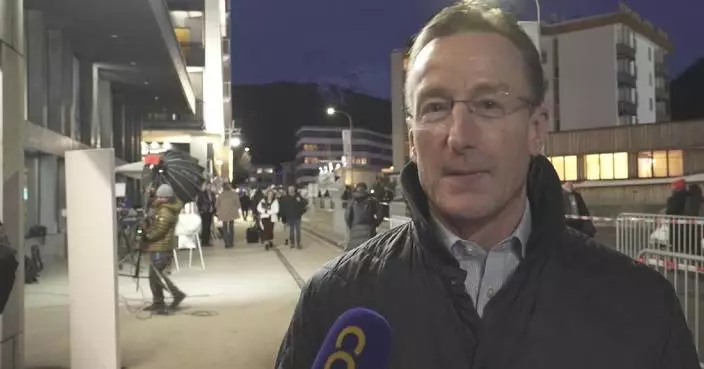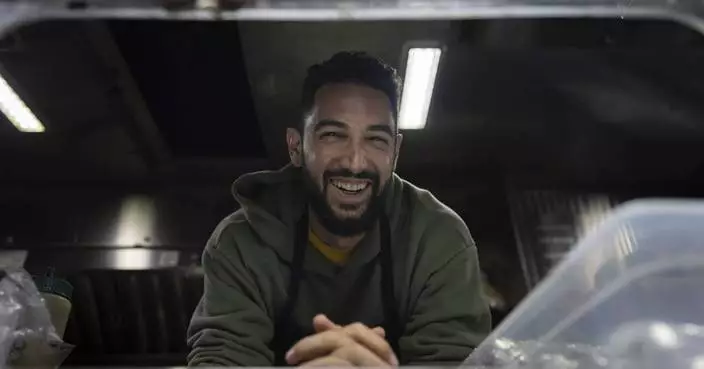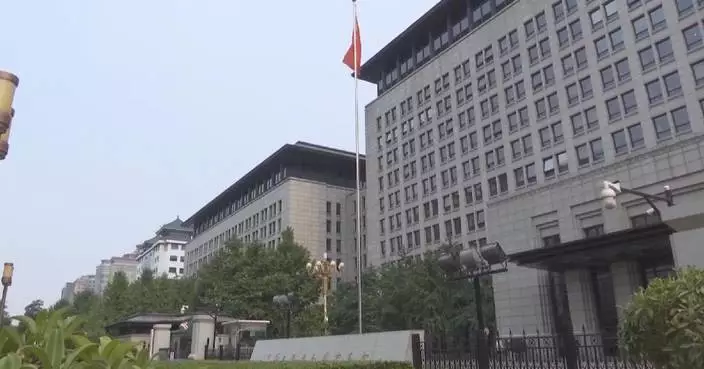At least three news outlets were leaked confidential material from inside the Donald Trump campaign, including its report vetting JD Vance as a vice presidential candidate. So far, each has refused to reveal any details about what they received.
Instead, Politico, The New York Times and The Washington Post have written about a potential hack of the campaign and described what they had in broad terms.
Their decisions stand in marked contrast to the 2016 presidential campaign, when a Russian hack exposed emails to and from Hillary Clinton's campaign manager, John Podesta. The website Wikileaks published a trove of these embarrassing missives, and mainstream news organizations covered them avidly.
Politico wrote over the weekend about receiving emails starting July 22 from a person identified as “Robert” that included a 271-page campaign document about Vance and a partial vetting report on Sen. Marco Rubio, who was also considered as a potential vice president. Both Politico and the Post said that two people had independently confirmed that the documents were authentic.
“Like many such vetting documents,” The Times wrote of the Vance report, “they contained past statements with the potential to be embarrassing or damaging, such as Mr. Vance's remarks casting aspersions on Mr. Trump.”
What's unclear is who provided the material. Politico said it did not know who “Robert” was and that when it spoke to the supposed leaker, he said, “I suggest you don't be curious about where I got them from.”
The Trump campaign said it had been hacked and that Iranians were behind it. While the campaign provided no evidence for the claim, it came a day after a Microsoft report detailed an effort by an Iranian military intelligence unit to compromise the email account of a former senior advisor to a presidential campaign. The report did not specify which campaign.
Steven Cheung, a spokesperson for Trump's campaign, said over the weekend that “any media or news outlet reprinting documents or internal communications are doing the bidding of America's enemies.”
The FBI released a brief statement Monday that read: “We can confirm the FBI is investigating this matter.”
The Times said it would not discuss why it had decided not to print details of the internal communications. A spokesperson for the Post said: “As with any information we receive, we take into account the authenticity of the materials, any motives of the source and assess the public interest in making decisions about what, if anything, to publish.”
Brad Dayspring, a spokesperson for Politico, said editors there judged that “the questions surrounding the origins of the documents and how they came to our attention were more newsworthy than the material that was in those documents.”
Indeed, it didn't take long after Vance was announced as Trump's running mate for various news organizations to dig up unflattering statements that the Ohio senator had made about him.
It's also easy to recall how, in 2016, candidate Trump and his team encouraged coverage of documents on the Clinton campaign that Wikileaks had acquired from hackers. It was widespread: A BBC story promised “18 revelations from Wikileaks' hacked Clinton emails” and Vox even wrote about Podesta's advice for making superb risotto.
Brian Fallon, then a Clinton campaign spokesperson, noted at the time how striking it was that concern about Russian hacking quickly gave way to fascination over what was revealed. “Just like Russia wanted,” he said.
Unlike this year, the Wikileaks material was dumped into the public domain, increasing the pressure on news organizations to publish. That led to some bad decisions: In some cases, outlets misrepresented some of the material to be more damaging to Clinton than it actually was, said Kathleen Hall Jamieson, a University of Pennsylvania communications professor who wrote “Cyberwar,” a book about the 2016 hacking.
This year, Jamieson said she believed news organizations made the right decision not to publish details of the Trump campaign material because they can't be sure of the source.
“How do you know that you're not being manipulated by the Trump campaign?” Jamieson said. She's conservative about publishing decisions “because we're in the misinformation age,” she said.
Thomas Rid, director of the Alperovitch Institute for Cybersecurity Studies at Johns Hopkins, also believes that the news organizations have made the right decision, but for different reasons. He said it appeared that an effort by a foreign agent to influence the 2024 presidential campaign was more newsworthy than the leaked material itself.
But one prominent journalist, Jesse Eisinger, senior reporter and editor at ProPublica, suggested the outlets could have told more than they did. While it's true that past Vance statements about Trump are easily found publicly, the vetting document could have indicated which statements most concerned the campaign, or revealed things the journalists didn't know.
Once it is established that the material is accurate, newsworthiness is a more important consideration than the source, he said.
“I don't think they handled it properly,” Eisinger said. “I think they overlearned the lesson of 2016.”
David Bauder writes about media for the AP. Follow him at http://twitter.com/dbauder.

Republican vice presidential nominee Sen. JD Vance, R-Ohio, waves as he leaves with ice cream at Olson's Ice Cream Wednesday, Aug. 7, 2024, in Eau Claire, Wis. (AP Photo/Alex Brandon)

Republican vice presidential nominee Sen. JD Vance, R-Ohio, and his wife Usha Chilukuri Vance order ice cream at Olson's Ice Cream Wednesday, Aug. 7, 2024, in Eau Claire, Wis. (AP Photo/Alex Brandon)

FILE - Republican vice presidential candidate Sen. JD Vance, R-Ohio, left, and Republican presidential candidate former President Donald Trump, shake hands at a campaign rally in Atlanta, Aug. 3, 2024. (AP Photo/Ben Gray, File)
PARK CITY, Utah (AP) — As many in the entertainment industry navigate the devastating effects of the California wildfires, some will soon be decamping to cleaner air in the mountains. The annual Sundance Film Festival begins Thursday in Park City, Utah.
The 41st edition of Robert Redford’s brainchild will, as always, be a year of discovery and discussion. There are timely films:
— “Free Leonard Peltier,” which will premiere just days after former President Joe Biden commuted the sentence of the Indigenous activist nearly half a century after he was imprisoned for the 1975 killings of two FBI agents.
— Oscar-winner Mstyslav Chernov’s“2000 Meters to Andriivka,” a joint production between The Associated Press and Frontline about an attempt to liberate an occupied territory in Ukraine
— Several films about trans rights including “Heightened Scrutiny,” about civil rights lawyer Chase Strangio. It's a topic even more pressing after President Donald Trump signed executive orders Monday rolling back protections for transgender people.
There are even some controversies brewing: “The Stringer,” from documentary filmmaker Bao Nguyen, calls into question who took the Pulitzer Prize-winning “Napalm Girl” photograph. Retired AP photographer Nick Ut and the AP, which conducted a six-month investigation into the allegation, are contesting it vigorously and lawyers have asked for it to be pulled from the program.
“The film is an investigation,” said Eugene Hernandez, the director of the festival, who is moving forward with plans to screen it. “I think it will be a really important conversation that will come out over the next few days after the film is seen by more people.”
Don’t worry, it’s not all heavy. There’s drama of course, even a film about starting over after a fire (“Rebuilding,” with Josh O’Connor), horror, satire, literary adaptations, comedy, documentaries about famous faces, and some that simply defy categorization.
“There’s some really funny stuff in the program,” Hernandez said. One of those Hernandez cited is “Bubble & Squeak,” about a married couple accused of smuggling cabbages into a nation where they’re banned.
For first time filmmakers, Sundance can be their chance to break through in a big way. That happened last year for “Dìdi” filmmaker Sean Wang. Some films that debuted last January are still in the awards conversation, like “A Real Pain” and “A Different Man.” For actors, the festival is both a casual respite to awards season glitz (snow boots are more likely on red carpets than high heels) and can be a chance to show audiences a new dimension of their talent.
“It’s a strong year of renewal for our artist community,” Hernandez said. “And we have a lot of really great voices and stories that we get to unveil in the coming days.”
Here’s everything you need to know:
Sundance runs from Jan. 23 through Feb. 2. There are about 90 features premiering across the 11 days, with screenings starting early in the morning through midnight. Award-winners will be announced on Jan. 31.
Stars with films premiering include Jennifer Lopez, Benedict Cumberbatch, Diego Luna, Conan O’Brien, Alison Brie, Dave Franco, Ayo Edebiri, Olivia Colman, André Holland, Steven Yeun, Mark Ruffalo, Bowen Yang, Carey Mulligan, Joel Edgerton, Lily Gladstone, Dev Patel, Emily Watson, John Lithgow, Marlee Matlin, John Malkovich, Rose Byrne, Chloë Sevigny, Josh O’Connor, Ben Whishaw, Dylan O’Brien, Lili Reinhart and Willem Dafoe.
One of the greatest things about Sundance is that it’s often the under-the-radar movies that become the breakouts.
But some of the higher-profile premieres going into the festival include: Bill Condon’s “Kiss of the Spider-Woman,” starring Lopez; Ahmir “Questlove” Thompson’s documentary “SLY LIVES! (aka The Burden of Black Genius)”; “Opus,” a horror about the cult of celebrity with Edebiri and John Malkovich; Andrew Ahn’s “The Wedding Banquet,” with Bowen Yang and Kelly Marie Tran; the war satire “Atropia,” with Alia Shawkat; “Pee-wee as Himself,” about the late Paul Reubens; “Marlee Matlin: Not Alone Anymore”; and Andrew Jarecki and Charlotte Kaufman’s doc “The Alabama Solution,” about a cover-up in one of America’s most notorious prison systems.
Festival organizers have been in dialogue with filmmakers, staff, audiences and donors about the effects of the fires, supporting and accommodating where possible including pushing back deadlines to allow filmmakers more time to finish. The festival will also have a QR code displayed before screenings for information on sharing resources or contributing to relief efforts.
“As hard as the last week has been, this will be a moment to come together,” Hernandez said. “The community’s really responding to support those who need it most right now. I think that’s going to be a profound aspect of this year’s festival.”
For the most part, yes. Starting in 2027 the festival will no longer be primarily based in Park City. It may stay in Utah but would operate mainly out of Salt Lake City. Other finalists are Boulder, Colorado, and Cincinnati, Ohio. The Sundance Institute is expected to announce its final decision in the first quarter of 2025.
“Park City as the home of Sundance is such a special place,” Hernandez said. “I look at it optimistically because we have two more exciting years in this current configuration. I think we’re going to make the most of those two years and make them as memorable and meaningful as we can.”
Access to the movies premiering at Sundance doesn’t necessary require an expensive trip to Park City anymore. The festival has fully embraced an online component for many of their films.
What started as a necessary COVID-19 adjustment has become a vital part of the program. From Jan. 30 through Feb. 2, audiences can stream much of the program online. Prices start at $35 for a single film ticket and go up to $800 for unlimited access.
Otherwise, films that secure distribution can take anywhere from a few weeks to over a year to hit theaters or streaming services. Steven Soderbergh's “Presence,” which premiered last January, is just hitting theaters this week.
For more coverage of the 2025 Sundance Film Festival visit: https://apnews.com/hub/sundance-film-festival

The marquee of the Egyptian Theatre is shown Thursday, Jan. 28, 2021, in Park City, Utah. (AP Photo/Rick Bowmer)







